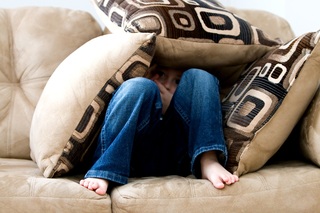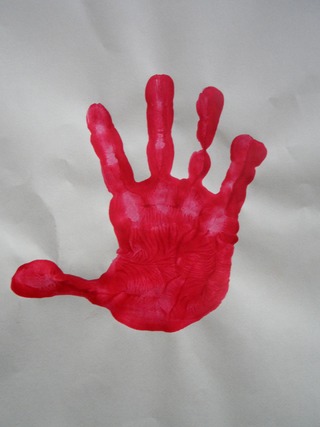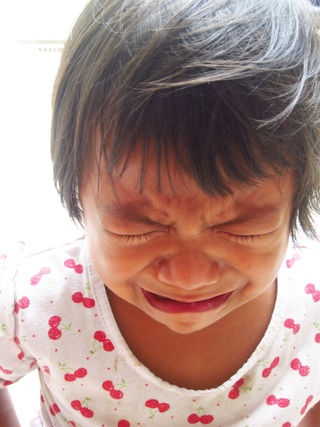A suspected case of sexual abuse in a Viennese kindergarten has made big waves, as four cases are currently being investigated. There is a need for action on the part of policymakers because the current measures for child protection in elementary educational institutions are inadequate. Danger also lurks in various recreational activities for children, since staff members are often not subjected to background checks. How can the youngest children in the education system be better protected from falling into the wrong hands?

ABUSE ALLEGATIONS AGAINST EDUCATORS

About a year ago, a kindergarten teacher in Vienna-Penzing was accused of sexually abusing a child. The responsible municipal department MA10 did not make the case public, as the facts were clarified internally with the parents of the child concerned. Thirteen months later, in May of this year, parents of the other children in the kindergarten found out about the accusations and further charges were filed. The public prosecutor’s office is currently investigating a total of four suspected cases and is obtaining expert opinions. A commission has also been set up to investigate the allegations made in Vienna-Penzing and to present a report by the beginning of July at the latest. The accused teacher had recently been transferred to the internal office. The media as well as the parents accuse the City of Vienna of a cover-up attempt – there are also plans on the part of the parents to file a lawsuit against the city.
As if that wasn’t bad enough, the media also reported an incident in a private kindergarten in the 23rd district. Here, a caretaker allegedly choked two children and molested them in the bathroom.
POLITICAL REACTIONS
After the story broke, it was only a matter of time until the political parties spoke out. The FPÖ demanded the immediate suspension of the head of the MA10, and at the beginning of June she was indeed removed. The site manager of the kindergarten in question in the 19th district also had to resign. Furthermore, the FPÖ and the ÖVP accuse the city council of having acted too late and demand further measures in the form of child protection concepts or an ombudsman’s office financed by the city. The Greens (Die Grünen) emphasize that pedagogical staff who are suspected of misconduct should not come into contact with children until the matter has been fully clarified.

HOW SAFE ARE CHILDREN IN OUT-OF-HOME CARE?
Parents and guardians are unsettled, and rightly so. The most important thing for them is to be able to hand their child over to another caretaker with a good feeling. However, trust in the kindergarten as an institution has clearly been damaged, and especially towards male teachers – and rightly so? Pedagogy professor Bernhard Koch emphasizes that there is no scientific evidence that pedophilic men would be more likely to work in kindergartens. He finds it disheartening that men who enjoy working with babies and small children are under general suspicion of being pedophiles in Central Europe. In Scandinavia, for example, the proportion of men working in elementary education is much higher than here. Such negative media reports, whether the accusations are true or not, do enormous damage to the image of teachers.
INSUFFICIENT VERIFICATION

Unfortunately, there are black sheep everywhere, and among them are women as well as men. Better measures are needed to identify them and keep them away from children and young people. Unfortunately, the protective measures in Austria are highly underdeveloped. In addition to the scandals in kindergartens, it recently became known that a man who was convicted of child abuse more than ten years ago was offering sports courses for children between the ages of five and twelve. His previous conviction has since been expunged, meaning it no longer appears on his criminal record. Most recently, he worked for the Austrian Alpine Association and led various outdoor courses. The vice-president of the Alpine Club, Nicole Slupetzky, informed the media that in the meantime, the cooperation with the convicted man has been terminated. She dismisses all blame, saying that the association has 11,000 volunteers and it is simply not possible to do a background check on every single one. Moreover, the employee’s expunged prior conviction had not been visible in the criminal record anyway. Slupetsky instead sees the legislature as the responsible party. This is a glaring error in the system: a person convicted of child abuse should simply never be allowed to work with children and young people again. The current state of the law grants no legal ability to ban this man from working with children and youth, meaning he can continue to offer holiday courses on an independent basis.
POSSIBLE APPROACHES FOR BETTER PROTECTION
Experts sense a legal loophole here and call for an Austria-wide child protection law. A universal ban on former sex offenders from working in this profession would be a start. Barbara Steiner, a lawyer who has been working for many years as guardian ad litem in abuse proceedings, agrees. It is imperative that legislators find a strategy to better screen pedagogical staff, no matter if it is a kindergarten or a summer camp.
As is so often the case, the U.S. has taken an extreme, out-of-the-ordinary approach. There is a public website where you can find all sex offenders who have served time in prison. If I live in a suburb of Boston, for example, I can go online and see if there is a sex offender living within a one-mile radius of my home. Not only will I have access to a photo, but also to the exact address of the convicted offender. This kind of registry would be unthinkable in Austria, simply because of data protection regulations.
The child protection center “Möwe“ calls for the introduction of a kind of “child care seal of approval”. In addition, parents should make sure that the facility or organization has an appropriate child protection concept.
THE FOUR-EYES PRINCIPLE
A protective system that would certainly prove its worth is the four-eyes principle. However, this is no longer the case in kindergartens due to the acute shortage of staff. If there were enough educational staff, it would be possible to prevent situations such as one person changing a child’s diaper alone or helping children go to the bathroom without anyone looking over their shoulder. The key to a safe environment for children (but also for male educators) would be a “culture of keeping watch“. Ideally, everyday life should not involve a caregiver being alone in an enclosed space with a child. A lot can be done to help with this already when designing classrooms, for example, by installing large windows in the changing room. Above all, a better childcare ratio – which, as many know, has been demanded for years – could substantially increase safety in kindergartens. At the moment, it does not look as if anything will improve in this respect any time soon. One thing is clear: pushing men out of kindergartens is not fair because most of them are great educators who add value to everyday life in kindergarten.

